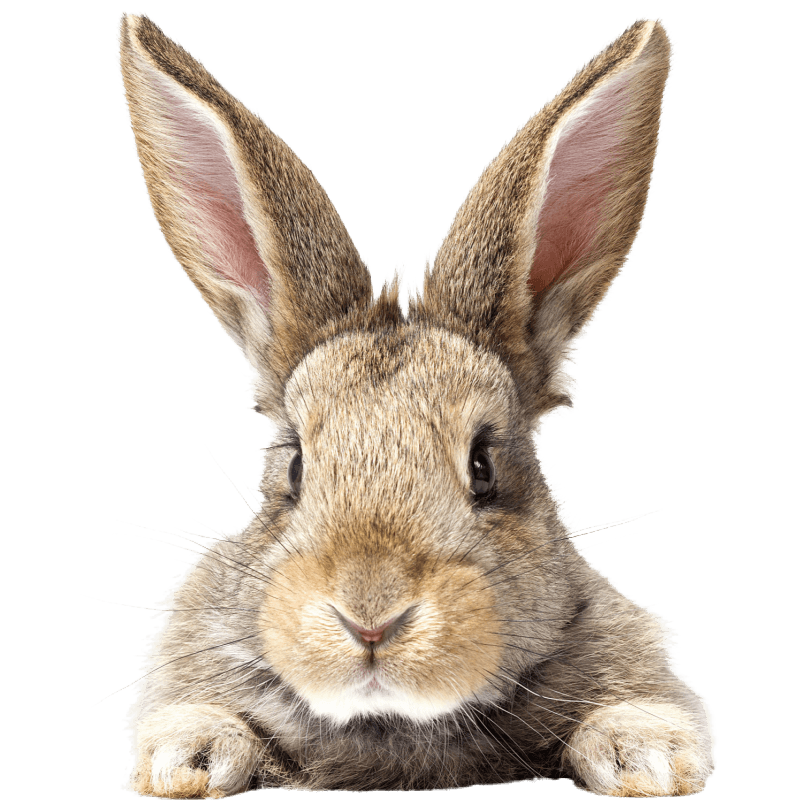Rabbit Insurance

Rabbits make wonderful pets, celebrated for their intelligence and friendly, social nature. While adopting a rabbit is usually quite affordable, it’s important to keep in mind that they are classified as exotic animals. This designation can lead to higher veterinary costs, particularly if your rabbit becomes ill or injured.
Why get rabbit insurance?
Rabbit insurance gives you peace of mind by helping cover those unexpected vet bills. It means your furry friend gets the expert care they need without leaving you stressed about the cost. Our insurance is here to take the financial pressure off so you can focus on taking care of your bunny!
How much does rabbit insurance cost?
The cost depends on your rabbit’s breed, age, health, and how much you originally paid for them. For example, if you’ve got a lionhead rabbit that cost £50, our Essentials plan would only be £16.87 a month. That includes up to £2,000 of vet fee cover each year!
A range of policies to suit you and your pet rabbit
Vet fees
Excess
Add up to 3 pets per policy
£2,000 (Shared by all pets on cover)
£65 per treatment
✔️
£2,000 (Per pet, per policy period)
£65 per treatment
✔️
Insurance for older rabbits
We can insure rabbits up to 5 years of age, and cover can start from 8 weeks of age.
Can you insure rabbits who have recently been unwell?
We can’t cover your rabbit if they’ve been to the vet for an accident or illness in the last 3 months. But don’t worry – once they’ve been treatment-free for 3 months and are fit and healthy, we can insure them. Pre-existing conditions won’t be covered in the first year, but after that, we’ll review them based on the policy terms, with no exclusions applied.
As always, cover is subject to our Policy Terms and Conditions.
Caring for your rabbit
Things you’ll want to take into consideration when caring for your rabbit include their diet, housing set up and bedding options.
You’ll want to ensure that they have spacious accommodation as well as a safe and secure area in which they can exercise outside of their hutch at least once a day. In terms of diet and health, rabbits are herbivores and can enjoy a wide variety of fruit and vegetables as part of their diet.
Rabbits are unfortunately susceptible to a number of health conditions such as GI statis, a condition in which the passing of food though the GI tract slows down.
Signs of illness in rabbits to watch out for includes slow movement or hiding away, an increased thirst, a decreased appetite/not eating at all, changes to stools, changes to breathing or discharge from the eyes, nose or mouth.
If you suspect your rabbit may be ill, contact your vet.
Why choose ExoticDirect?
- Specialist exotic pet insurance providers since 1996
- We can pay your vet directly
- We’re a friendly UK based team
*Prices are correct as of November 2025.
